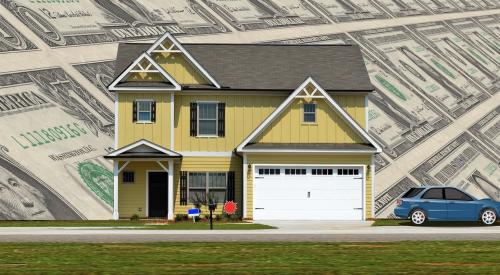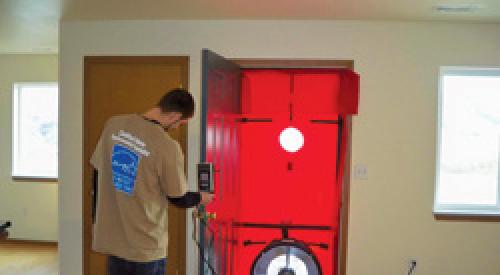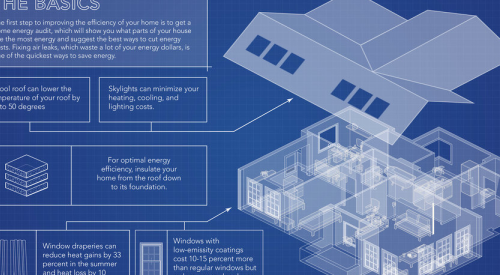|
|
Gradual technology changes that reduce construction costs are readily adopted into the mainstream home building industry. But technologies that differ radically from conventional practice - or those that increase a home's first cost - usually have difficulty gaining acceptance. Such technologies face an uphill battle in the real estate appraisal process, too.
Builders willing to champion advanced technologies must first appreciate the obstacles to appropriate valuation. By developing habits of advocacy, you can make all the difference in how these technologies are perceived in your locale.
Undervaluing Innovation
Innovations that enhance comfort and durability while also increasing construction costs are not always fully reflected in the home's appraisal value, which may result in an insufficient loan value. Prospective buyers must either subsidize the technology through a higher down payment or choose a less expensive, conventional technology.
"Appraisers research, measure and quantify buyers' and sellers' reactions to innovative products," explains John Bredemeyer, government affairs chairman of The Appraisal Institute. "Their valuations depend on how much consumers are willing to pay for the innovations and how broad the consumer appeal of a particular technology may be."
A higher valuation is unlikely if the appraiser fears the homebuyer will resist paying more for innovative technologies or if the technology appears to lack broad appeal.
Buddy Hughes, a North Carolina home builder and president-elect of the North Carolina Home Builders Association, also notes that without sufficient data to demonstrate increased resale value, appraisers cannot justify increasing the property value to the lender.
An NAHB roundtable discussion on Home Innovation and the Appraisal Process in 2001 found that appraisers may actually assign a reduced value to properties that incorporate unconventional technologies. Again, they fear that future homebuyers will be unwilling to pay more for a home with innovative products.
The advantages of new technologies that are complex or lack immediate visibility, such as new insulation methods or wall structures, aren't easy for appraisers and home buyers to evaluate. Lenders are often unwilling to provide financing for structures where the value of the property is unknown because they must also account for the home's value upon possible foreclosure
Turning the Tide
How do builders persuade appraisers to assign the proper value for innovative products and practices in new homes,thereby convincing lenders to assume the risk for them? Here are the seven habits of highly effective agents for change.
- Arm yourself with information. They want data? Give them data. Visit PATHnet and ToolBase Services for field evaluation reports and a technology inventory useful for educating appraisers and consumers.
- Market your finished product. New home and resale buyers are most often aware of the features constituting curb appeal, including the roof, siding and landscaping. They cannot see such innovations as wall insulation, optimum value engineering and hybrid wood-steel framing. Market the invisible features as well as the visible ones.
- Keep samples of the technologies on site. Show these to consumers and appraisers along with collateral materials, such as brochures and videos. Distribute this information at home shows and local show-home events.
- Be upfront with customers on appraisal value. Hughes usually experiences more appraisal-related issues with custom homes than with spec homes. To educate his customers, Hughes informs them when appraisers are unlikely to value the investment, dollar-for-dollar. Bredemeyer suggests that this occurs when the technology or product appeals to a smaller group of buyers, which may jeopardize its resale value. Appraisers may not provide sufficient value for the specific technology, but instead include it in the range of value assigned to the entire home.
- Regularly interact with members of the local home building industry. Market conditions vary throughout the country, so communication with your local home building industry members is key. Local and state homebuilder associations are excellent vehicles for distributing information on innovations and discussing them with appraisers.
Don Kelly, vice president of public affairs for The Appraisal Institute, recommends that home builders also consider joining their local appraiser chapters, and offer to speak to industry members on innovations whenever possible.
- Identify and network with the most qualified appraisers in your market. Appraisers who have earned the SRA professional designation from The Appraisal Institute are recognized throughout the residential construction industry for their expertise in real-estate valuation and analysis. The SRA designation's requirements exceed those for state licensing or certification processes. These appraisers have access to the most current information on home building valuation and may be more receptive to information on innovative technologies and practices.
- Pass it on. Successes and failures in persuading appraisers of technology value are equally instructive. Share your experiences with the Partnership for Advancing Technology in Housing (PATH) so that others can learn and join in the ongoing work of advancing technology in housing by e-mailing info@pathnet.org.
The Partnership for Advancing Technology in Housing offers information for the entire home building industry. Visit us at www.pathnet.org and www.toolbase.org.











